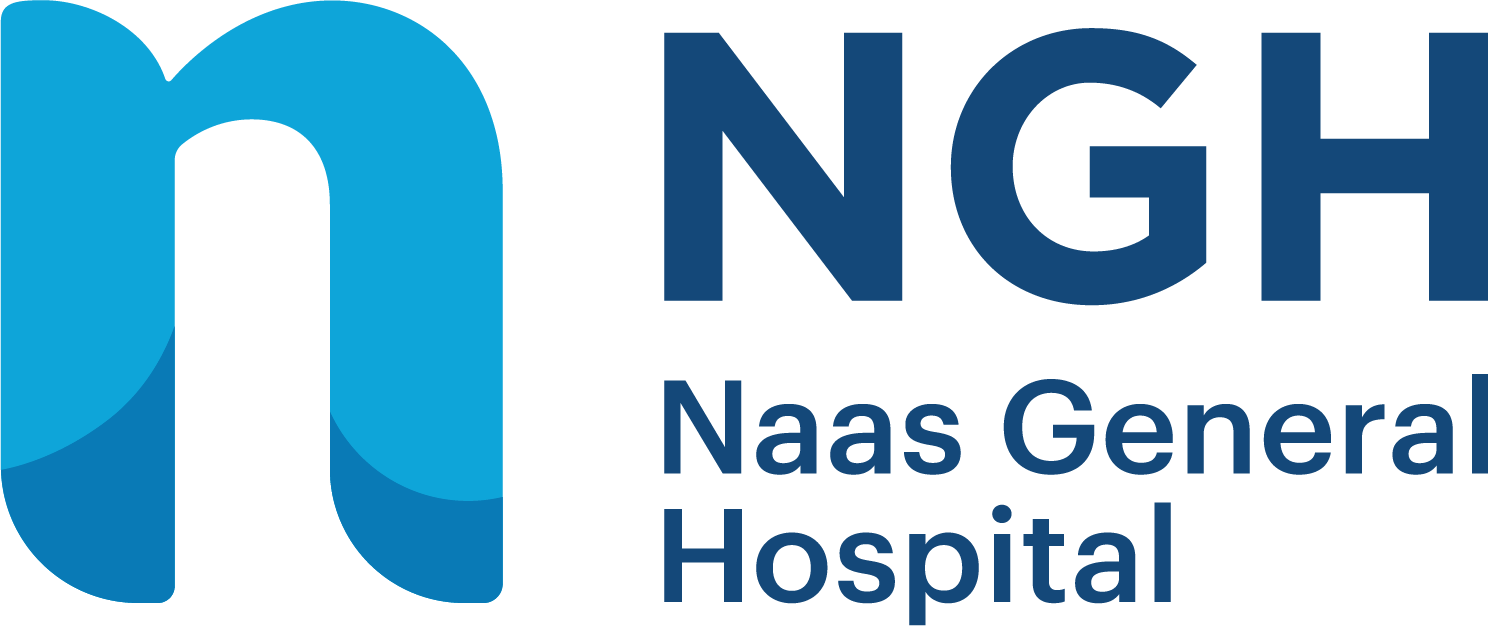What is Physiotherapy?
Physiotherapy is a healthcare profession. It uses physical methods to promote health and to prevent, treat, and manage disease and disability. It addresses problems with movement, dysfunction, and pain. These can arise from musculoskeletal, neurological, or respiratory issues. They can also stem from chronic disabilities, mental illness, or intellectual impairments.
Physiotherapy Department
We provide an in-patient and out-patient service that is based on high standards of care.
Our department provides physiotherapy services to Naas General Hospital and patients living in the Kildare/West Wicklow area.
Our team includes:
- Physiotherapy Manager
- Clinical Specialist Physiotherapists
- Senior Physiotherapists
- Practice Tutor
- Physiotherapists
- Physiotherapy Assistants
- Therapy Assistant
- Physiotherapy Attendant
- Clerical officers.
Clinical Specialist and Senior physiotherapists oversee the services for each of the specialities.
Staff work closely with other Health and Social Care Professionals, and with medical and nursing staff.
We use comprehensive assessments and individualised treatment to achieve our goals. This combines education, continuous support, home exercise programmes and advice. We use our knowledge of human anatomy and physiology to provide the best quality patient care.
*** As of 30th September 2018 only Physiotherapists registered with Coru (www.coru.ie) can work in Irish Hospitals. A Chartered Physiotherapist is a Physiotherapist who is Coru registered and also a member of the Irish Society of Chartered Physiotherapists (ISCP www.iscp.ie).
Outpatient Services
- Outpatient Musculoskeletal Services
- Orthopaedic Clinics
- Rheumatology
- Neurology
- Women’s Health
- Day Hospital Services for older adults
- Cardiac Rehabilitation
- Frailty Intervention Team in the Emergency Department
- Musculoskeletal Triage Clinic
- Virtual Fracture Assessment Clinic (VFAC)
What you should do if you cannot keep an appointment?
Contact the department at 045 849941/2 as soon as you become aware that you will not be able to keep your appointment. Please give at least 24 hours’ notice so that we may offer the appointment to someone else.
If you can't reschedule at cancellation or miss an appointment, please contact the department to reschedule within 10 days. Otherwise you will be discharged from physiotherapy.
If you fail to attend any two appointments, you will be discharged from the physiotherapy service.
Inpatient Services
- Inpatient rehabilitation
- Neurology Inpatient Service
- Respiratory physiotherapy
How to Find Us
The Physiotherapy Department can be accessed most easily via the Old Hospital Entrance. Please be aware that there is an incline of approximately 40 meters from the Old Hospital entrance to the department, so exercise caution when using this corridor.
There are two designated parking spaces for individuals with disabilities available at the Old Hospital entrance. To use these spaces, you must possess a valid disabled persons parking card.
Parking within the hospital grounds is limited, so please allow ample time to find a parking spot to ensure you make the most of your scheduled appointment with the physiotherapist.
Physiotherapy Students
The physiotherapy department has strong links with UCD. Our staff facilitate clinical placements for UCD's undergraduate physiotherapy students during the year. There is one Practice Tutor on site who coordinates these placements. The department occasionally facilitate placements from other national and international universities. As a teaching hospital, a service-user may be treated by a student. Permission will be sought in advance. The student will be supervised by a Practice Tutor/Educator.
Frequently Asked Questions
|
How do I access outpatient physiotherapy services? |
Patients require a doctor's referral to see a physiotherapist in NGH. Once a referral is received it will be triaged by a senior physiotherapist. This means allows us to prioritise patients as urgent or routine. Your name will then be placed on our waiting list. Your waiting time will vary depending on the nature of your condition. |
|
How will I be contacted with my appointment details? |
When your name moves to the top of the waiting list you will receive a text message asking you to make an appointment. |
|
How long will the appointment last? |
The initial assessment will take 30- 45 minutes. Further appointments are generally 30 minutes, but it can vary with certain conditions. |
|
What should I wear? |
You will have a thorough assessment to determine the cause of your complaint. The physiotherapist will need to examine your posture and movement and will ask you to expose the affected part of your body. If you have a back, hip, or knee issue, wear shorts or loose clothes. If you have a neck or shoulder issue, wear a string vest top. |
|
Do I need to bring anything else? |
Please bring a list of any medication you are taking and a copy of results of any relevant investigations and tests. If you usually need reading glasses please bring them also as you may be asked to complete a questionnaire to help with your rehabilitation. |
Note: All those under 18 years must be accompanied by an adult .
Useful Links
- Alzheimer’s Society of Ireland
- Arthritis Foundation of Ireland
- Arthritis Ireland
- Assist Ireland, Citizens Information Board
- Asthma Society of Ireland
- Chartered Society of Physiotherapists UK
- COPD Ireland
- Ex Well Medical
- Get Ireland active
- Healthy Ireland
- Headway Ireland
- Irish Carers Association
- Irish Heart Foundation
- Irish Motor Neurone Disease Association
- Irish pain Society
- Irish Society of Chartered Physiotherapists
- Multiple Sclerosis
- National Council on Aging and Older People
- Osteoporosis
- Parkinsons Association of Ireland
- Services for citizens in general
- Spinal Injuries Action Association
- Volunteer Stroke Scheme


-
Mon-Fri8:30 a.m. – 5 p.m.
